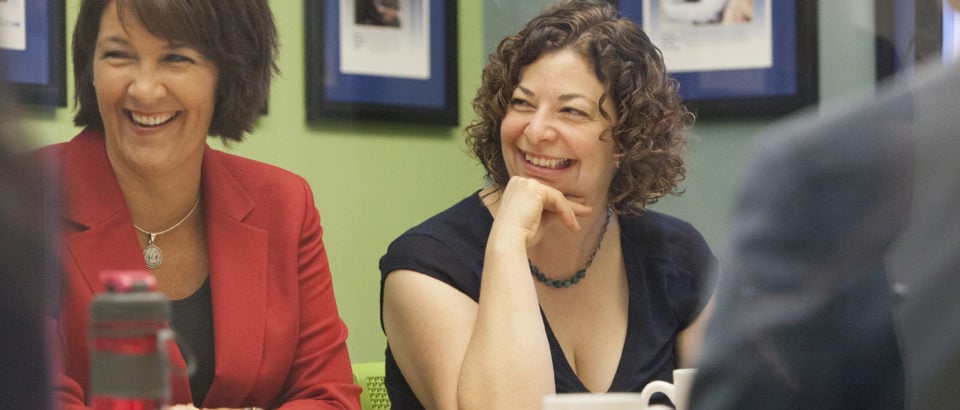*As seen online at McKnight's Long Term Care News*
Most of us who work in the post-acute industry have chosen this field because of our compassion for the population we serve, which typically means we have emotionally-invested, all-consuming jobs. Even when we love these jobs, there comes a time to move on, or move up, and the process can seem overwhelming. 
Even if you're not currently working, the process can seem like an obstacle course, or worse, dating.
Going it alone is certainly possible, and many do, but the odds of making a good impression, and ultimately landing the next job you'll love, are better when you've got a best friend.
Finding and getting a new job is the job of professional recruiters. In the post-acute industry, recruitment firms specialize in administrative and executive placement, and because good recruiters are committed to both you and the post-acute community, they stand by you through the entire process. In short, a good recruiter becomes your new best friend. Here's the evidence:
THEY KNOW ALL THE COOL PLACES:
A recruiter that works solely in the post-acute industry always has his/her ear to the ground with regard to open roles in the local area, and has an in depth understanding of the quality of particular organizations, and the nuances of specific roles. Any recruiter worth his/her salt is also privy to details about a position, and what the company needs/wants for the role, that aren't publicly posted. Ultimately, this can increase your outreach in the market.
THEY KNOW ALL THE BEST PEOPLE:
Recruiters get resumes into the hands of decision makers, rather than into the drawer of the HR department. This shortens job search time and saves you from waiting by the phone – recruiters should make sure you get a response, even if it's a ‘no.'
It should be noted here that this is a good test of the relationship with your recruiter. If your recruiter is not regularly available to you, and routinely does not get feedback from potential employers – they are not vested in a relationship with you and aren't looking out for your best interests. It's time to find a new best friend.
THEY BRING OUT THE BEST IN YOU:
Most recruiters can help you prep for a basic interview, but a recruiter who specializes in the senior living industry, and knows his/her local market well, can take you to the next level. This is where the inside scoop mentioned above becomes particularly handy. A good recruiter will discuss possible interview questions and work with you to deliver a clear and concise message to potential interview questions tailored to the organization and role. In most cases they know who you will be meeting with, what type of questions to expect from each person, and what type of interview to expect (i.e. group, behavioral, conversational, etc.).
This service is especially valuable if it's been some time since your last interview. Even the most accomplished, confident, and gregarious among us can flub an interview by ‘winging it.' Perspective is everything, and what you perceive as your most eloquent answer has to pass through another's lens – and may create a completely different picture. Your recruiter can help you deliver your message to best communicate your current situation, avoiding a misunderstanding that could cost you your dream job.
It's important to mention here the value of debriefing with your recruiter after the interview. A candid discussion and assessment will lay the foundation for future plans, even if you get the job.
THEY KNOW YOU BETTER THAN YOU KNOW YOURSELF:
Simply put, your recruiter will make a frank, objective assessment of your skills, and present you only for positions that match your qualifications, saving you precious job-searching time.
THEY RUN INTERFERENCE FOR YOU:
Recruiters understand that not all jobs work out. If you had a bad work experience that resulted in an unexplained short tenure on your resume, your recruiter can discuss the situation with the hiring manager before he/she dismisses you as a ‘job hopper.'
THEY ADVOCATE FOR YOU:
Once you have established a good relationship with your recruiter, he/she will be intimately familiar with your salary history and expectations, and have a good idea of the salary range the organization can/will offer. This places him/her in the perfect position to be a buffer in salary negotiations, ensuring a start date that is unmarred by judgment or ill-will secondary to a contentious salary negotiation, all while making sure you are fairly compensated.
A professional recruiter will come along side you in your job search, help find you the position that best suits you, better prepare you for interviews, and provide a negotiating buffer. All of which will save you time, spare you uncertainty, and reduce the stress that inevitably comes from the process. If it's time for you to look to the next phase of your career, then it's time to meet your new best friend.
Julie Osborne is the Director of Recruitment at LeaderStat in Columbus, OH. She has worked for 25 years in the post-acute industry in the rehab sector as well as providing recruiting support.
-1.png?width=292&height=64&name=LeaderStat%20Logo%20(4)-1.png)


-1.png?width=258&name=LeaderStat%20Logo%20(4)-1.png)